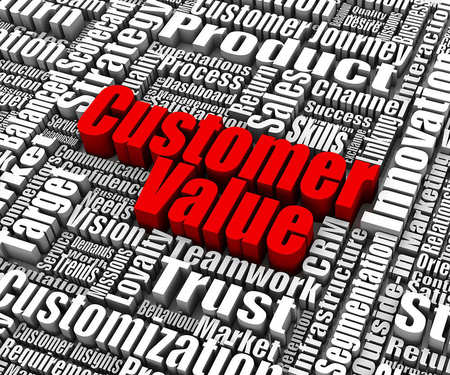
Maximizing customer value is an important part of maintaining and growing your business. Your customer value proposition is what keeps existing customers happy and brings in new business. Without a clear value proposition, you may have difficulties marketing yourself to new customers.
So, what if your customer value proposition? And how do you maximize it for better results?
What is your Customer Value Proposition?
Simply put, it’s what you offer your customers that differentiates you from your competition. It’s why they should select your product or service over another option. You could base your value proposition on any of the following:
- Convenience
- Speed
- Quality
- Service
- Product Features
Your customer value proposition generates value for your customers, it often underlies your marketing efforts and helps you convince them to switch to working with you. If you’re struggling to identify it, ask yourself why someone would pick your product or company over a different offering.
Maximizing your Customer Value Proposition
The more value you offer your customers, and the more benefit there is to selecting you as a partner, the easier it will be to retain and attract new customers.
Offer More than One Way to Maximize Value
Perhaps you’ve relied on a high-quality product to keep your customers happy, but you have slow delivery times. The reality is that a customer could leave you for a slightly lower quality product if that company can deliver it faster. It’s important to look for other areas where you could increase your company’s value.
For convenience - how easy is it to reorder or book any appointment? Can a customer do it all online, or do they have to wait on hold? A simple investment in an online ordering portal or appointment scheduler could not only increase their satisfaction but save you overhead.
The same principle applies for collecting payments. If you’re still sending invoices through the mail and receiving paper checks as payment, think about adding an online payment portal to your website.
In some businesses, the speed with which you deliver your product or service can be extremely important. It could cost you, or your customer, a lost sale if there are shipping delays. If you’re often out of stock of an important product, which causes delays, ook into better inventory management software. If the delays happen in shipping, consider switching shipping carriers or asking about expedited options.
Layering value on top of your existing value proposition maximizes the total value you offer your customers.
Customer Service and Experience
It’s harder to track how customers feel about the service you offer, but there are ways that you can gauge it.
Start by monitoring your online reviews and respond quickly to any negative feedback. Try not to get defensive, instead, read between the lines to see if there are real issues that you could address. Maybe they’re complaining about a slow email response time when they needed help, but you know the slow response was because someone was out of the office. Cross-train employees so that more than one person can answer questions.
Customer returns are another way to identify a problem. If you’re seeing a high volume of returns on one item or product, it could indicate quality issues. Examine returned items for any product defects, keep an eye on your manufacturing process, or suppliers, and perhaps offer incentives to dissatisfied customers to make up for the inconvenience.
Another way to get a handle on the value your customers receive through service and experience is to look at customer referrals. A large volume of customer referrals indicates that people are happy with your offerings. If referrals have been steady, and are now dropping off, dig deeper to find out the reason why.
Add Product Features
In the midst of running a business, it’s hard to conduct market research and keep an eye on competitors. But failing to do so could leave you behind when they release new product features or enhancements.
Regularly check competitor websites and their blog to see what they’ve added to their products or plan to add. When you’re monitoring customer feedback, pay attention to requests for new features or changes to your existing products. If enough people say the same thing, it’s a sign that you should invest in developing that enhancement.
Acting proactively to add product features shows customers that you’re listening to what they’re saying and thinking of their needs.
Maximizing your customer value proposition requires you to first identify what you offer customers, get clear on your existing value, and then think of ways to improve it. It could take a bit of trial and error if you’re unsure what areas of improvement your customers would view as offering them the most increased value. But in the long run it’s worth it to support your business’ ongoing operations and growth.
